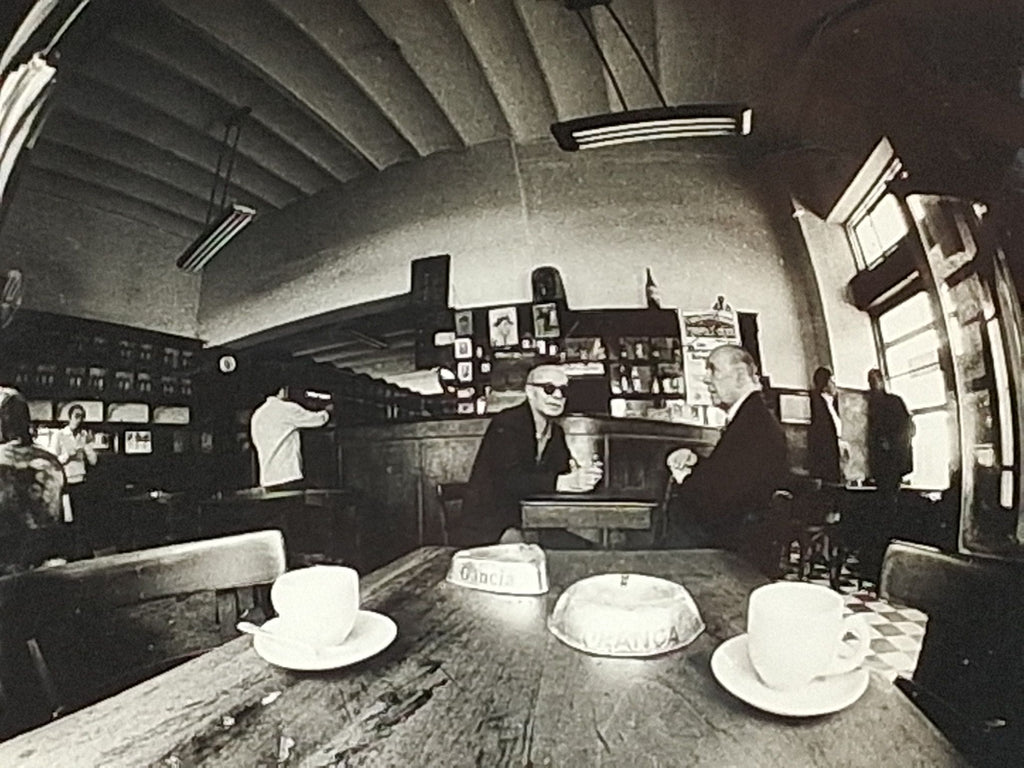A photograph of Borges and Sabato from the year of their reconciliation. Inscribed by Sabato in 1998
BORGES, Jorge Luis and Ernesto Sabato


Buenos Aries: Editorial Atlantida. 1975.
Silver gelatin photograph. 180x240mm. Taken using a fish-eye lens, it shows Borges and Sabato sitting together talking over a cup of coffee in a café. On the verso is the photographer's stamp from the magazine Editorial Atlantida. It has also been inscribed by Sabato "Para Juan contodo mui afecto. E. Sabato. 15 de Mayo de 1998". Protected by a transparent plastic envelope and housed in a heavy card folder covered with marbled paper.
The twentieth century was a golden one for South American literature and two of its towering figures were Jorge Luis Borges and Ernesto Sabato. But their relationship was not an easy one. Sabato, the younger man by twelve years, felt that he was in Borges's shadow. It was once mentioned to Borges that Sabato was being promoted by a publisher as "the rival of Borges". Borges replied that no-one had ever described him as "the rival of Sabato". There were, however, deeper intellectual and political differences between the two writers. The immediate catalyst for the breakdown of their friendship was the 1955 revolution which overthrew Peron's government. Borges supported the coup while Sabato publicly defended Peron and his supporters which included many leading cultural figures. Their differences were also reflected in their respective understanding of the links between high art and mass culture. Sabato was an unashamed elitist in the Modernist mould of Eliot and Pound and felt that Borges work engaged too readily with quotidian common culture. These clashes led to a twenty-year rift which was healed in a famous public meeting in 1975. Their subsequent conversations were collected in "Dialogos" which was issued with photographs of the two men in a café. This striking photograph – with its all-seeing eye suggesting the act of eaves-dropping - is from that set of photographs commissioned by the leading cultural and literary magazine Editorial Atlantida. A moving record of a complex relationship.
